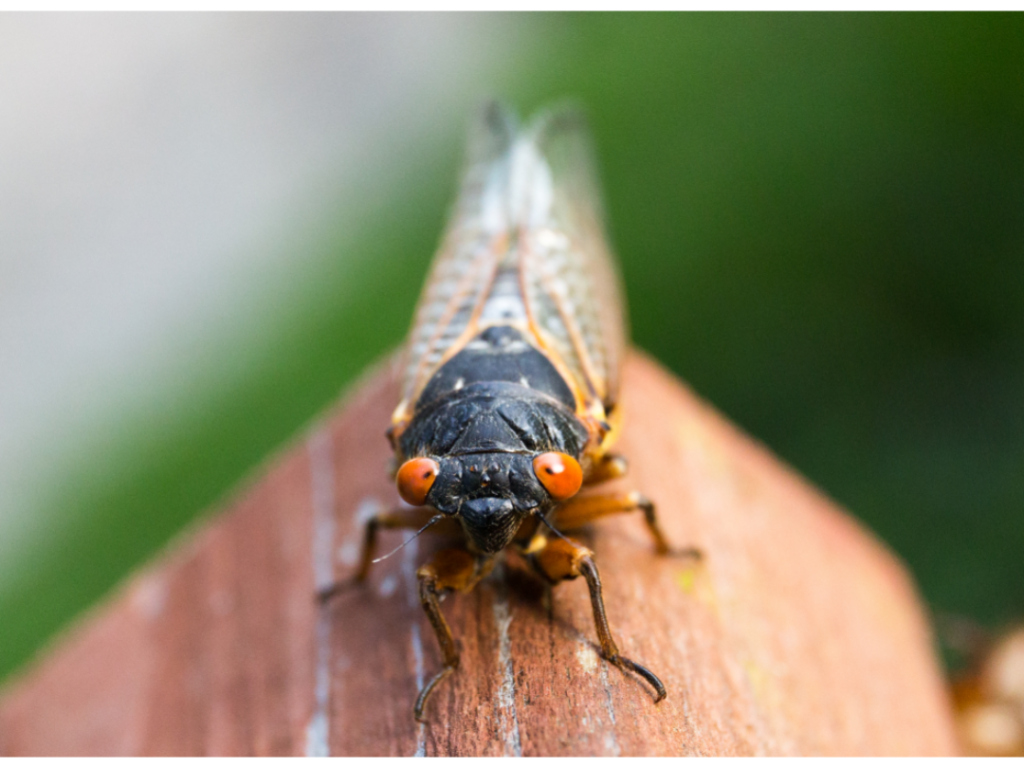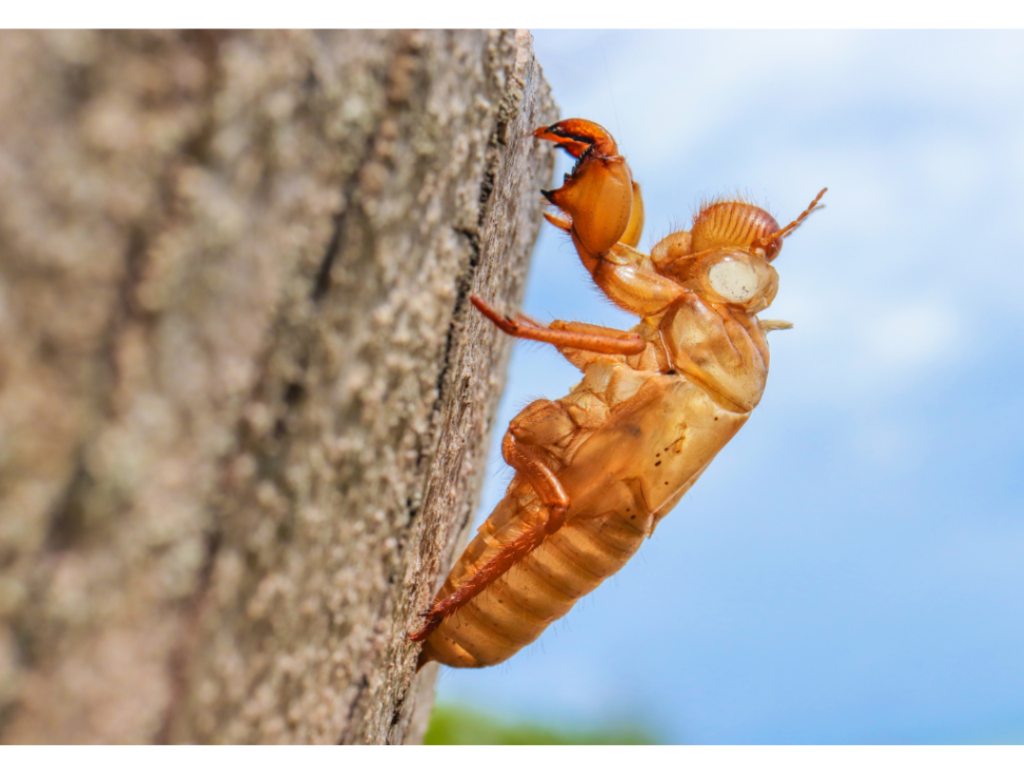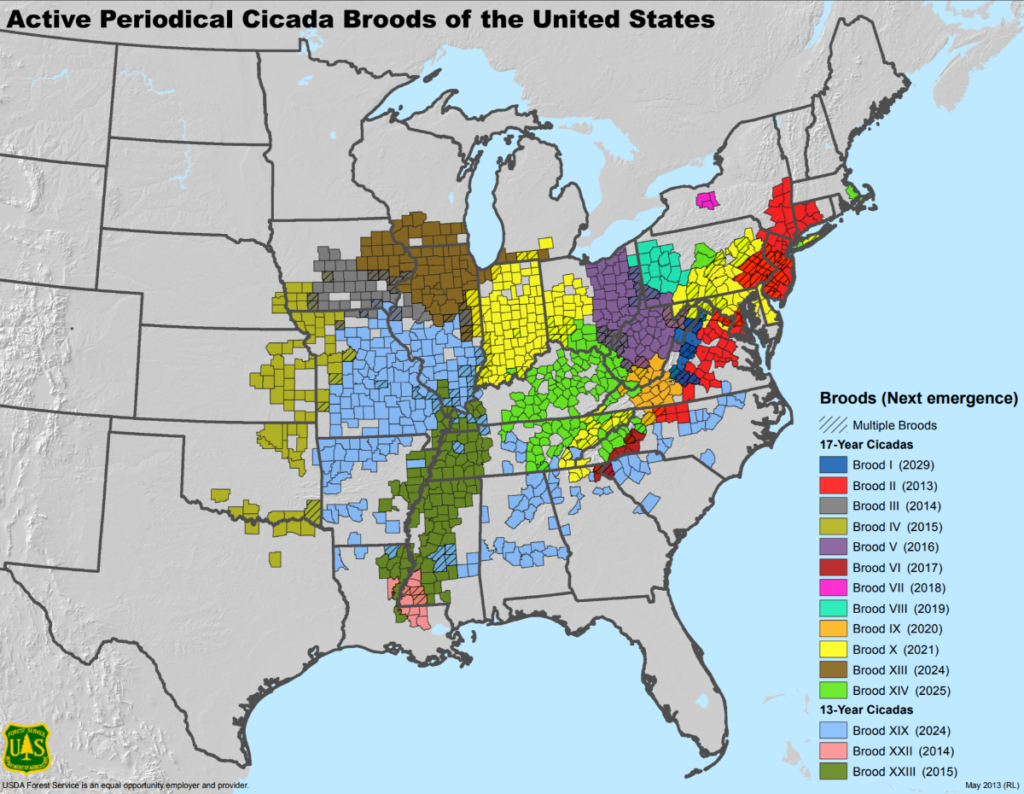Welcome Back to the Lab!
They’re here! Well, not here, here. But in the eastern United States, Brood X is finally emerging from their 17-year development to wreak havoc on outdoor picnics and interrupt every outdoor wedding from now until June. And while most folks in the east are disgruntled or downright disgusted, I’m personally a little jealous that I can’t be there for the grand entrance.

Brood X is the name given to a group of periodical cicadas; cicadas that are unique to the eastern US and that only emerge in 13- and 17-year cycles. The broods are numbered based on their geographic distribution and their date of emergence; a system that of naming that was devised by entomologist C. L. Marlatt in 1898. While Marlatt’s numbering scheme is useful, many broods also have common nicknames, with Brood X often referred to as the “Great Eastern Brood.”
Marlatt originally assigned roman numerals to thirty different broods, however, the numbering scheme was purely hypothetical at the time. Seventeen broods of 17-year cicadas, and thirteen broods of 13-year cicadas. Simple. However, several of these hypothetical broods have never been observed, and a couple have even gone extinct. All in all, there are fifteen broods of periodical cicadas that we know of today: Twelve 17-year cicadas and three 13-year cicadas.

There are seven species of periodical cicadas. They all belong to the genus Magicicada and all seven species are unique to the eastern United States. Their awe-inspiring emergence is often compared to a locust plague, although the comparison is completely unwarranted. Locusts are a type of grasshopper, while cicadas are true bugs. Magicicada spends the majority of their lives underground, feeding on tree roots until their dramatic arrival, when they spend several days seeking mates, laying eggs, and providing nothing short of a feast for many lucky insectivores, including humans.
The media attention surrounding the arrival of Brood X has prompted many chefs (amateur and professional alike) to develop their own tasty cicada recipes, like this spicy popcorn cicada recipe from the Washington Post, or these cicada cookies from CBS morning news. You can even download an entire cicada cookbook courtesy of the Cicadamaniacs of the Univeristy of Maryland.
Until next time, thanks for visiting the lab!
Bug Wrangler Brenna
brenna@missoulabutterflyhouse.org
Want to revisit a previous Notes from the Lab issue? Check out our archive! Do you want to request a subject for an upcoming issue? Email me at the address above and put “Notes from the Lab” in the subject line.
